How to Implement IAB TCF in WordPress – Guide For 2025
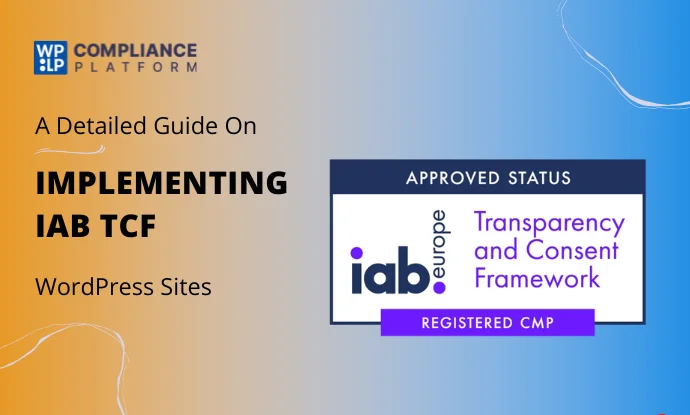
Summary
This guide will help you select the right Consent Management Platform (CMP), set up the IAB TCF, and implement WP Cookie Consent for a smooth experience. Discover how to enhance user trust, legally protect your business, and stay ahead of evolving regulations.
Do you know how to implement the IAB TCF on a WordPress site?
First, as a business owner, do you recognize what IAB TCF is? If not, this is the right guide for you. In the fast-paced digital era, where everything is concerned about the user’s privacy, there is an obligation to comply with GDPR.
First and foremost, gaining explicit consent from users to process their data is required if you want to be compliant with GDPR in online advertising. The IAB Transparency and Consent Framework (IAB TCF) serves that purpose.
In this article, we will show you how to choose and set up an appropriate Consent Management Platform (CMP) for your WordPress site and give insights into why CMPs are crucial in implementing IAB TCF in WordPress.
What is the IAB TCF?
The Interactive Advertising Bureau, or Initial Access Broker, is an American organization that helps media firms and marketing businesses expand or succeed in the digital economy.
The TCF aids media agencies, marketers, and websites in obtaining and maintaining user consent online to comply with data protection laws.
The Transparency and Consent Framework (TCF) of the Interactive Advertising Bureau (IAB TCF) ensures transparency and user choice on the part of all the groups in the advertising world about the General Data Protection Regulation (GDPR) requirements. It provides a single framework for European data privacy compliance.
The TCF also includes consent management platforms (CMPs) for website users. These platforms allow users to express their acceptance or rejection of using their data for defined purposes.
The Transparency and Consent String (TC String) is an essential component of TCF. It is a standard coded language for expressing user choices, and the CMP generates it. The TC String informs all interested parties across the ad tech ecosystem of the user’s choices.
Why is IAB TCF Important for Compliance?
The IAB Transparency and Consent Framework (TCF) ensures your WordPress site is automatically compliant with all GDPR and ePrivacy Directive specifications. It organizes and manages an efficient means to bring users’ consent into the whole organization for data-sharing practice.
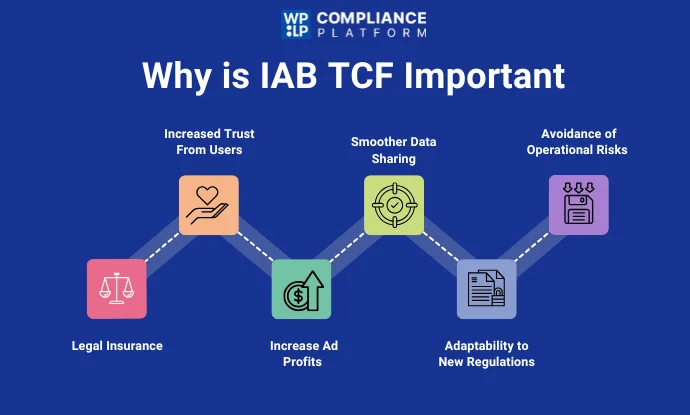
Key areas why implementing IAB TCF is important:
1. Legal Insurance
Connects your website to the legal framework, protecting your finances and reputation.
- Avoid Regulatory Fines: Fines up to €20 million or 4% of the annual global turnover.
- Demonstrate Compliance: IAB TCF provides a structured way to showcase adherence to privacy laws.
- Mitigate Legal Risks: Clear consent processes significantly reduce the possibility of lawsuits and data disputes.
2. Increased Trust From Users
You would have to earn their trust to get the kind of digital presence that can survive long enough.
- Transparency in Data Use: They will know exactly what type of data is collected from them, processed, and shared with others.
- Increased Participation: A website that considers its users’ needs and preferences will attract greater participation.
- Foster Loyalty: Being transparent is very beneficial for fostering long-term relationships with your audience.
3. Increase Ad Profits
Use people’s consent to unleash new opportunities to increase ad revenue.
- Access Premium Ad Networks: Compliance with IAB TCF is a must when collaborating with many advertisers.
- Personalized Ads: Ads based on the consent of the users pay more.
- Uninterrupted Monetization: This makes compliance run seamlessly with programmatic ad platforms.
4. Smoother Data Sharing
Easier data-sharing practices benefit both the advertiser and the website.
- Standardized Consent Signals: IAB TCF coordinates how consent signals are shared across the advertising ecosystem.
- Take Advantage of Global Vendor List (GVL): Identification and connection with compliant ad tech vendors.
- Consistency Across Channels: All parties interrelate using the same data-sharing framework.
5. Adaptability to New Regulations
Ensure adaptiveness so that your website easily fits into new privacy laws that are coming in the future.
- Update on Current Trends: The IAB TCF is updated for emerging new legal requirements.
- Future-Proof Compliance: This will ensure your website complies with the new privacy laws without causing significant disruption.
- Minimal Update Efforts: CMP tools should be easily modified and seamlessly adapt to new regulatory changes with minimal effort.
6. Avoidance of Operational Risks
Citizenship involves maintaining a trustworthy and effective online presence.
- Preserve Vendor Relationships: A continuous relationship of compliance brings various benefits.
- Website Functionality Protection: To avoid problems like vendor blacklisting and loss of income due to non-compliance.
- Brand Reputation Protection: Proactive compliance helps a company develop a positive brand reputation.
Real-Life Example:
A European online store using IAB TCF with a Consent Management Platform (CMP).
- 15% Ad Revenue Boost: The users trusted the site’s transparent procedures and consented voluntarily.
- Successful Audit in Terms of Compliance: The business passed GDPR audits without any problems.
Preparing Your WordPress Website for Implementing IAB TCF
Websites should implement the IAB TCF (Transparency and Consent Framework) in WordPress websites to ensure compliance with GDPR and other privacy regulations. The framework ensures accountability and transparency to how websites process users’ consent for data.
Here are a few ways to prepare your WordPress website for IAB TCF integration.
Evaluating Your Current Privacy and Consent Practices
Before adopting the IAB TCF model, you must evaluate your consent and privacy practices. These include:
- Examine Your Data Gathering: List the information that your website collects, including cookies, tracking scripts, and third-party integrations.
- Review CCPA and GDPR compliance against current practices: Harmonize current practices with the relevant laws. Close loopholes in terms of disclosures and data handling.
- Examine your privacy statement: Your privacy statement will, therefore, definitely need changes, with the clarified intent of this process on how user data are processed and for what purposes.
What is a CMP, and Why is it Essential?
A Consent Management Platform (CMP) is software that helps websites manage user consent by presenting users with defined windows to grant consent for the collection, processing, or use of their personal data. This is in compliance with privacy laws such as CCPA and GDPR.
Simply put, we can say that areas of privacy do comprehend proper accountability and transparency regarding user-related data when third-party services such as analytics or advertising are involved.
Key Features of a CMP
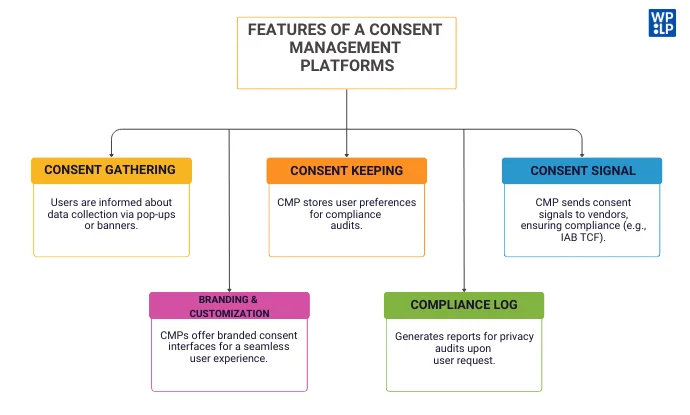
The features of a CMP enable robust consent management and compliance with regulations. These features consist of:
- Consent Gathering: Users are aware of a site’s data collection practices through some pop-ups or banners.
- Consent Keeping: User consent preferences are kept in the CMP, which will use that data for compliance audits.
- Consent Signal: CMP will send consent signals to the appropriate vendors and tools to comply with user preferences. Compliance is more necessary with cases such as IAB TCF.
- Branding and Customization: Some CMPs provide a design of consent interface that matches their brand identity to give their customers the smoothest experience.
- Compliance Log: Reports and compliance logs are generated when users request to audit their privacy compliance.
A CMP adds these functions together in one efficient process to provide a seamless consent management process, assuring your websites’ commitment to user privacy and compliance.
Setting Up a Consent Management Platform
Your website complies with the privacy regulations applicable to any online website, like GDPR, CCPA, and many more. One way to ensure it in such a case is to add a Consent Management platform (CMP) using any plugin.
A CMP helps you manage user consent for data collection, cookies, and privacy preferences and gives your visitors transparency and control.
There are many plugins that can work as CMPs on your WordPress site. Here are a few plugins that can be used to implement IAB TCF: WP Cookie Consent, Cookie Notice for GDPR & CCPA, Complianz – GDPR/CCPA Cookie Consent, Cookiebot, CookieYes.
Choosing the Right Cookie Consent Plugin for Your WordPress Website

Choosing an appropriate Consent Management Platform (CMP) for your website is fundamental to complying with privacy regulations such as GDPR or CCPA. The idea is to check a plugin’s legal requirements against considerations of your website’s design, function, and ease of use.
When choosing any CMP, consider the following:
- IAB TCF Certification: Check whether the CMP you are using is approved for the most recent version of IAB TCF.
- WordPress Integration: select a CMP that comes or has seamless integration with WordPress.
- Customization Features: Assess the CMP you are going to develop or use for its features, including the ability to customize the consent interface to match the website branding style.
- User Experience: Choose the CMP that provides granular control and has a friendly interface.
- Report and Logs: The CMP should have detailed reports and logs for the compliance audit.
Out of many CMP solutions available today, many site owners, including us, consider WP Cookie Consent to be among the best in implementing the IAB TCF on WordPress sites.
WP Cookie Consent
Website owners who want a simple yet robust way of meeting privacy standards should consider using WP Cookie Consent. Setting this up does not require technical skills, and customization is extensive.
Blogs, business websites, and e-commerce stores can all count on WP Cookie Consent to efficiently yet economically manage cookie consent and user privacy.
WP Cookie Consent ensures compliance while providing visitors with a transparent and user-friendly experience.
Here is why we love this plugin and why it fits your site:
- Easy Setup: Easy installation and setup; no technical skill required.
- Design & Customization: The design of the cookie banner is fully customizable to match your brand. (color, font, position).
- GDPR & CCPA Compliant: It helps to meet the GDPR, CCPA, and other privacy laws for consent management.
- Cookie Blocking with Ease: It blocks cookies, such as Google Analytics, before user consent is obtained.
- Mobile-Friendly: Responsive design makes sure that the banner looks good on all mobile gadgets.
- No Coding Skills Required: It is easily operated, even with minimal website usage experience.
- Cost-Effective: It is affordable for small to medium businesses.
WP Cookie Consent is the best way to address privacy compliance requirements while providing easy use for site visitors.
How to Install a WP Cookie Consent Plugin on Your WordPress
Follow these steps to install the WP Cookie Consent plugin to implement IAB TCF.
Step 1: Installing WP Cookie Consent Plugin
From your WordPress dashboard, navigate to Plugins > Add New.
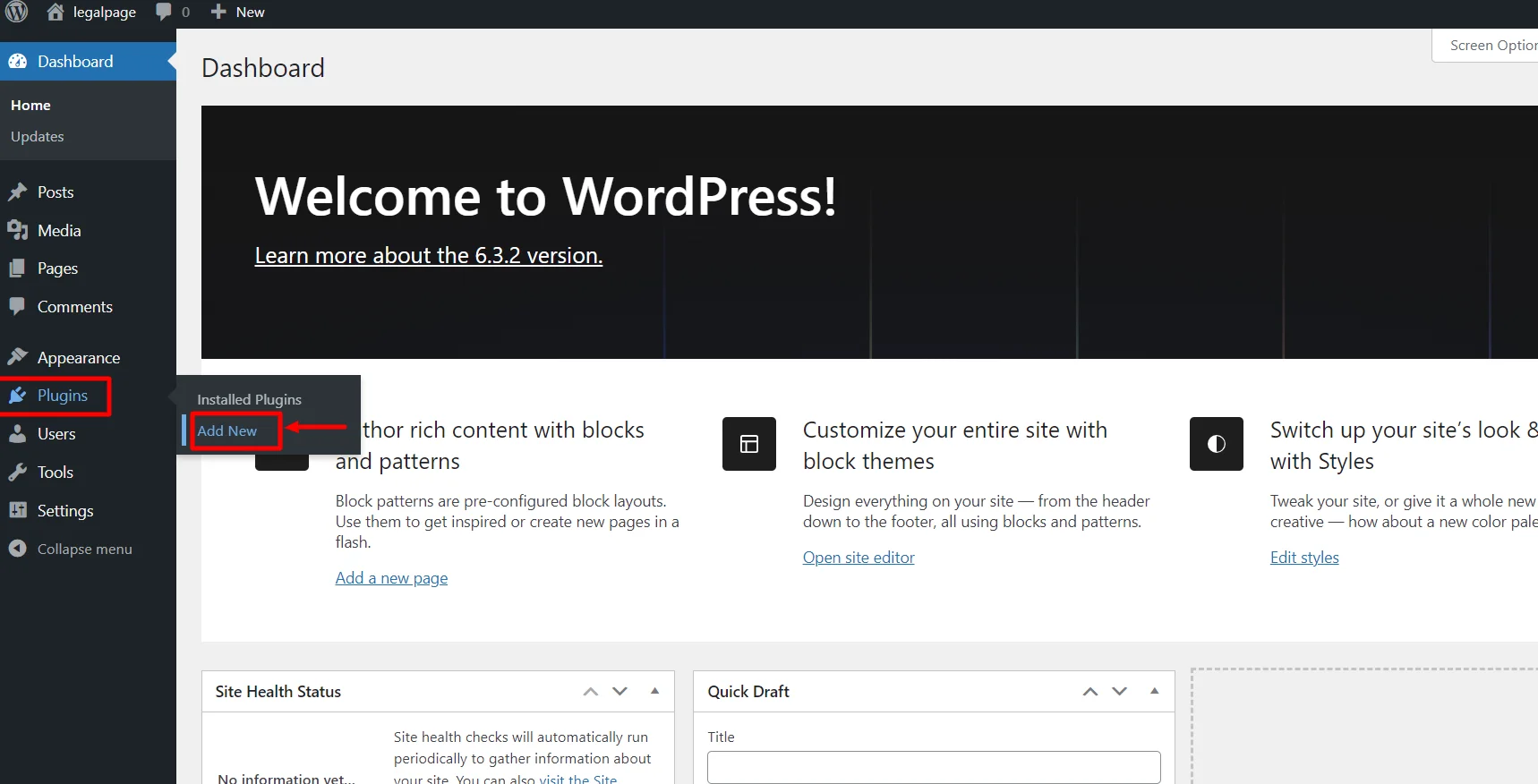
Search for WP Cookie Consent in the search bar.
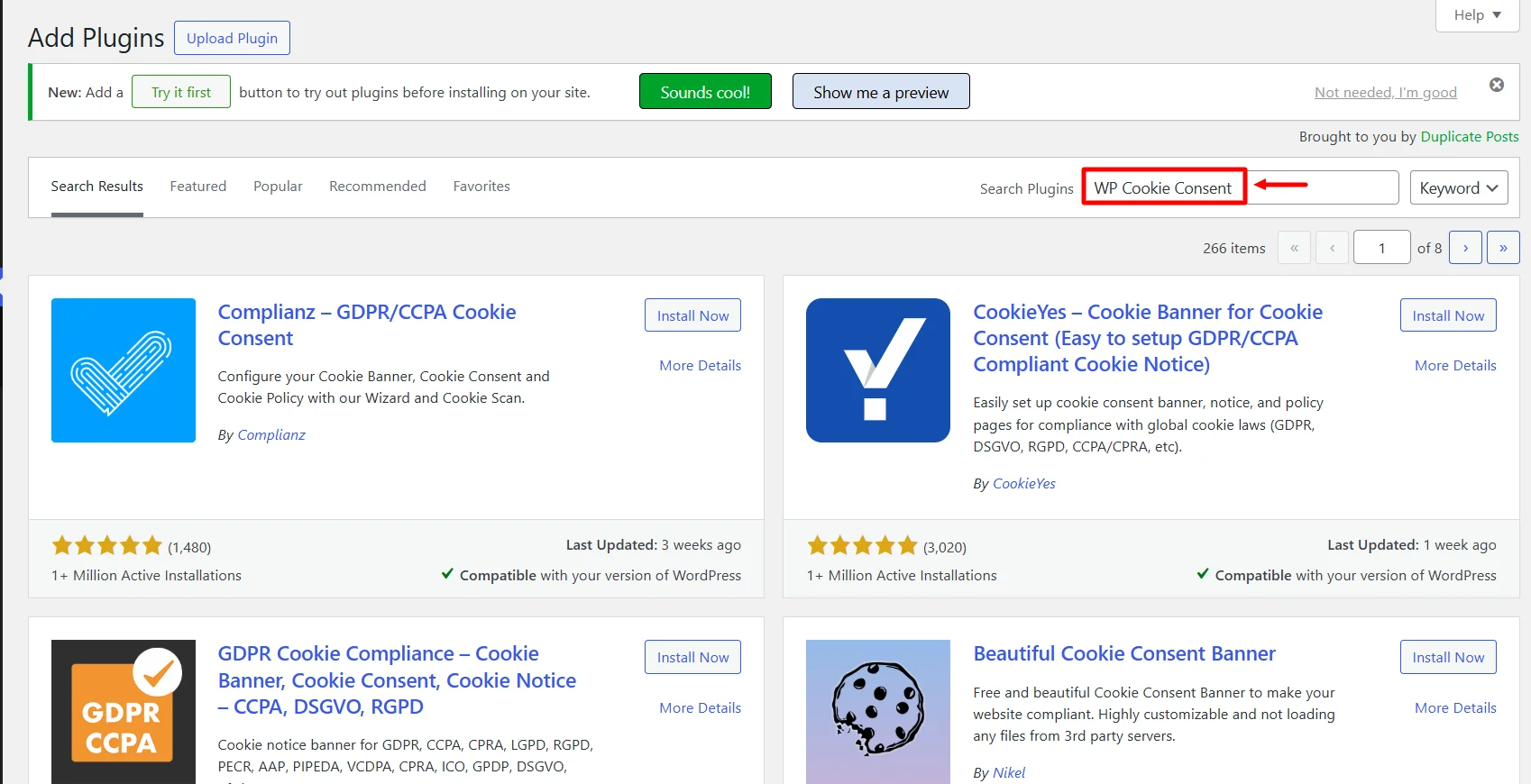
Click on the Install Now button.
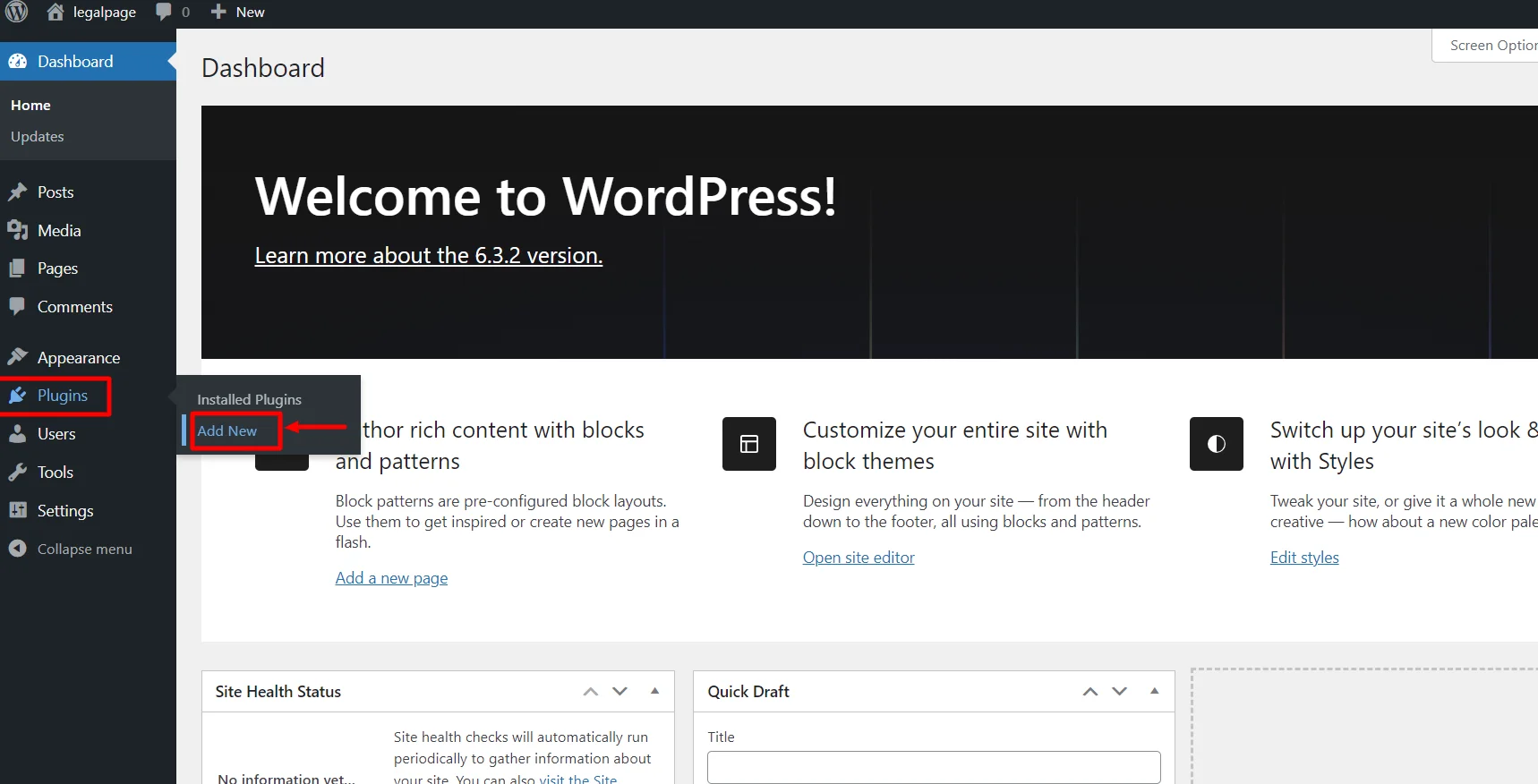
After installation, click on Activate to start using the plugin.
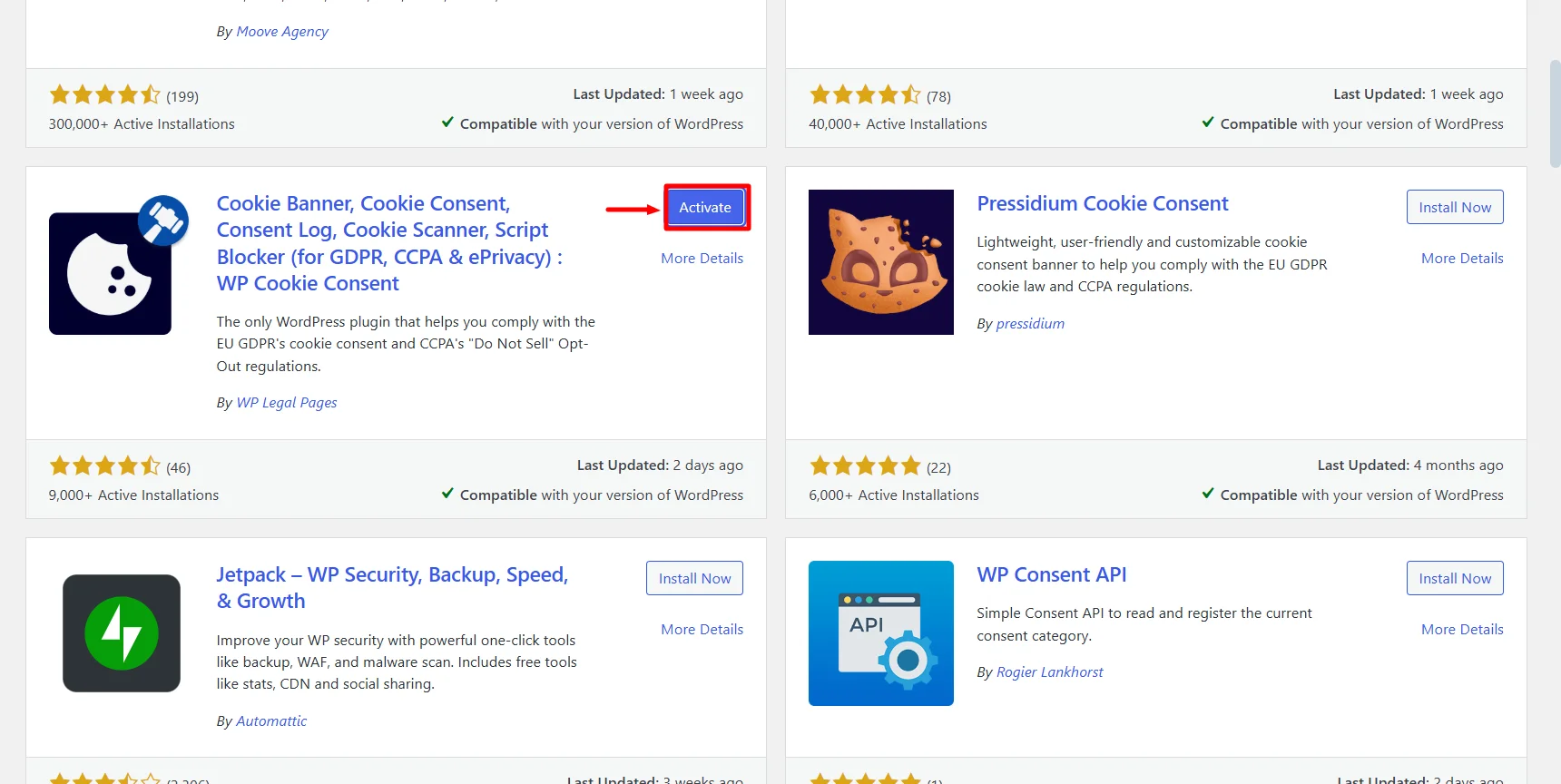
The WP Cookie Consent plugin is now installed and activated!
Step 2: Create an Account with the WP Cookie Consent Plugin
Now, to implement IAB TCF settings, first you need to create an account , to do so follow these steps:
From your admin dashboard, navigate to WP Cookie Consent. This will open up the WP Cookie Consent Dashboard page.
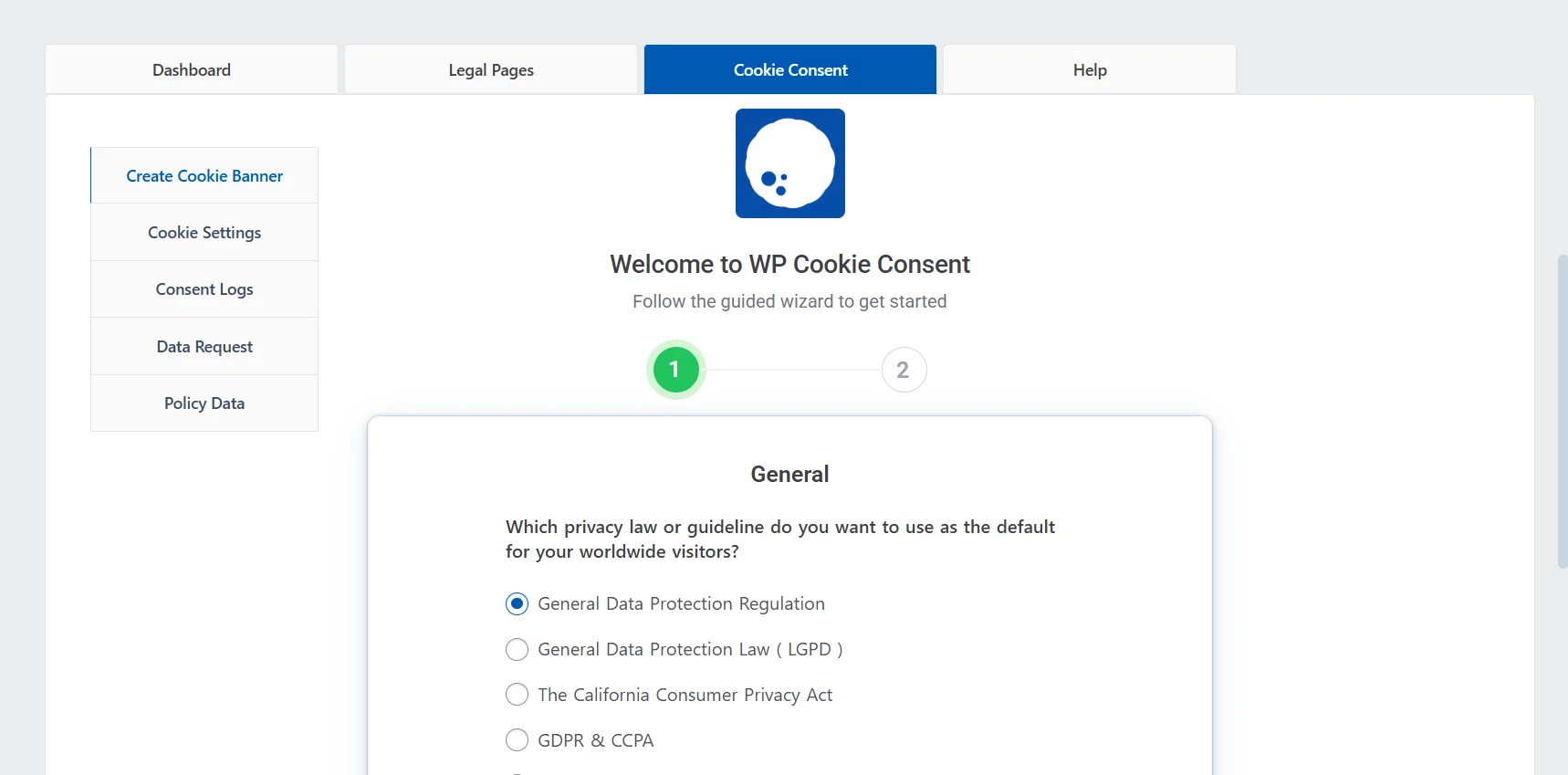
To create a new account, click on Signup for Free.
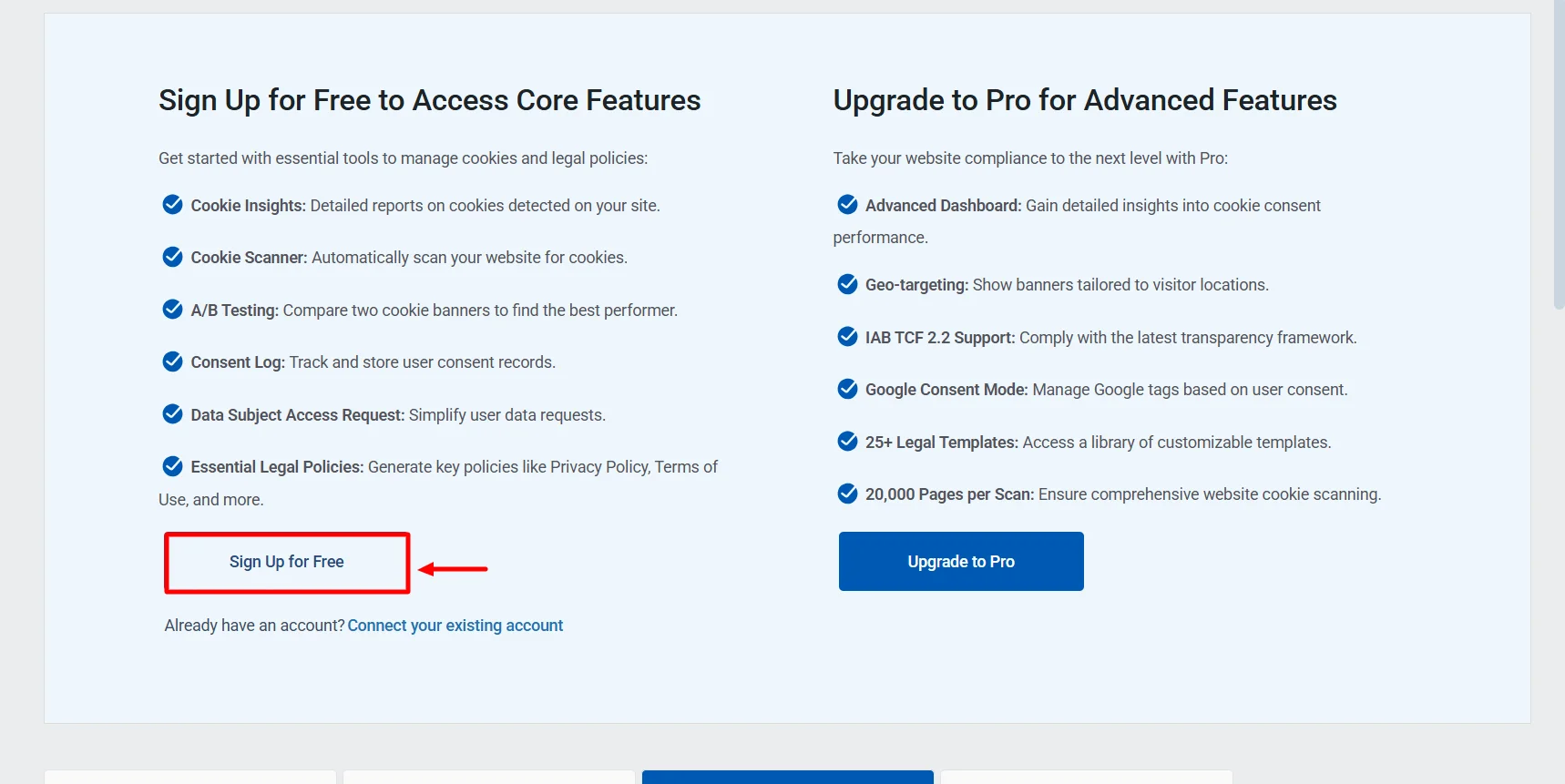
(Creating a new account will give you access to advanced features such as Cookie Scanner, Advanced Dashboard, and Geo-Targeting ).
A new pop-up will appear, prompting you to create an account. Clicking on this will redirect you to app.Wplegalpages.com.
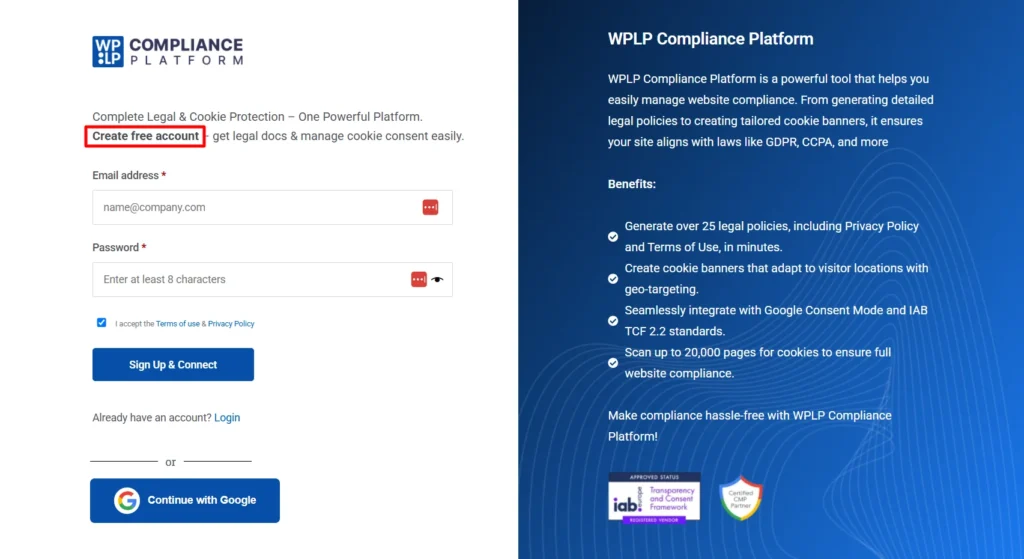
Sign up by entering your details and click on the Sign-up & Connect button
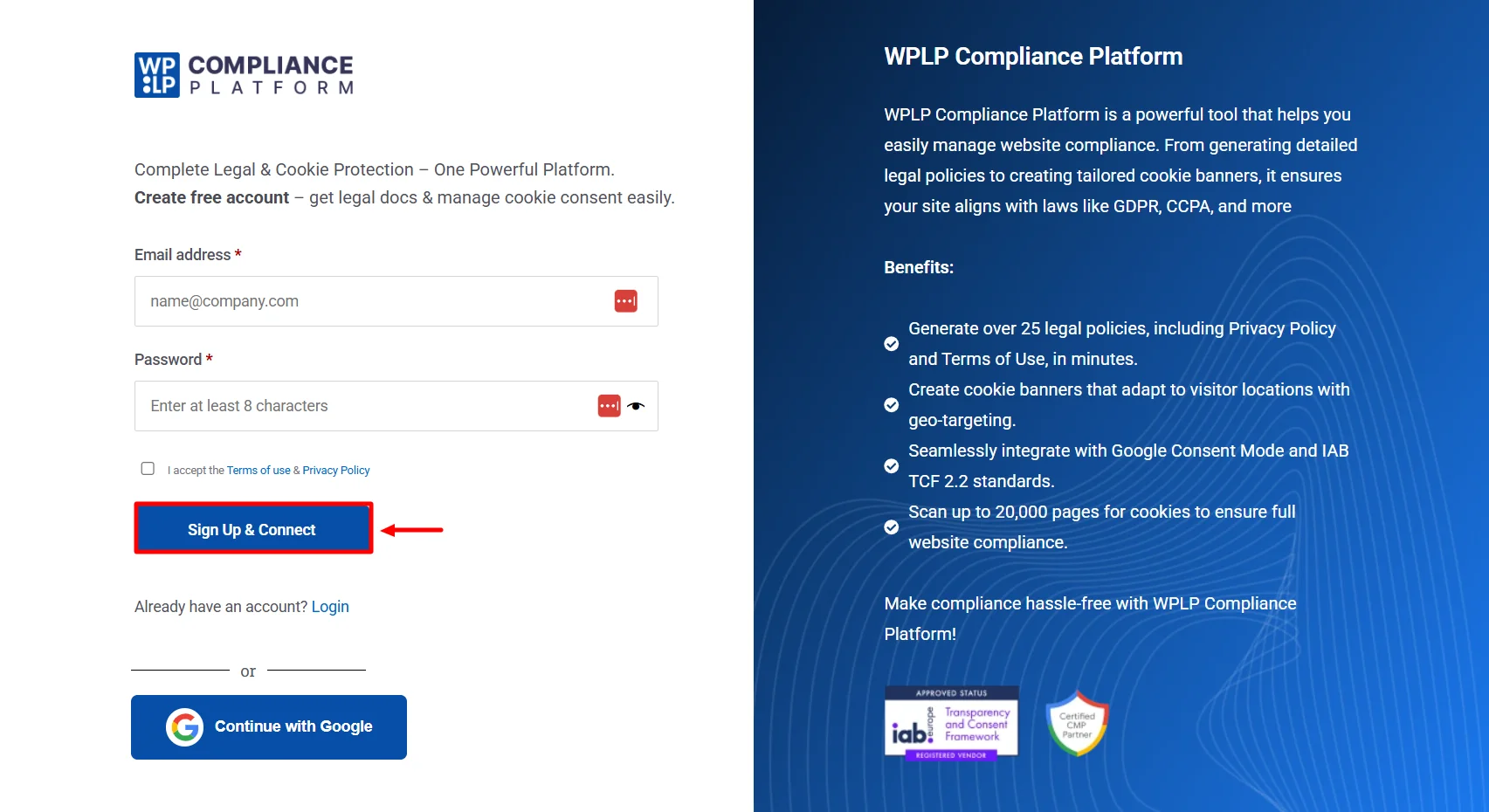
Click on Connect site to WP Cookie Consent plugin, and you’re done.
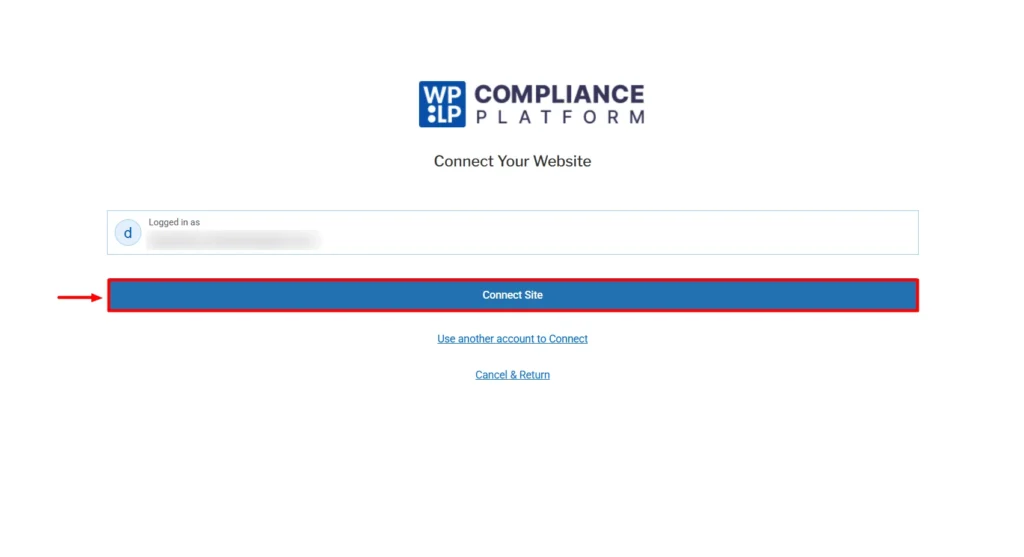
That’s it! You have successfully created an account.
Step 3: Implementing IAB TCF Settings
From your WordPress dashboard, navigate to the WP Cookie Consent Plugin.

To implement IAB TCF on your website, click on cookie settings.
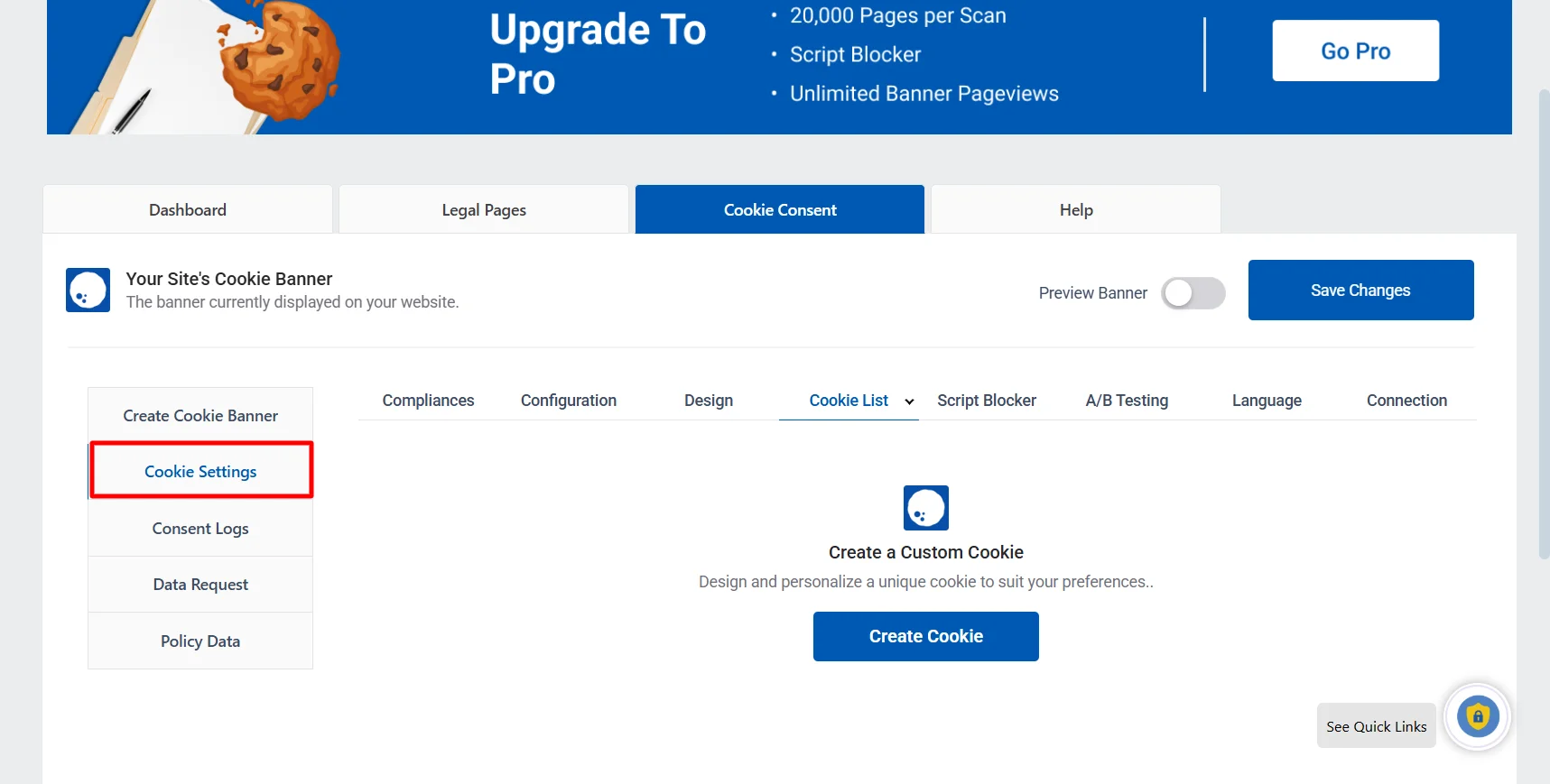
Once you are in the cookie settings, within the compliance tab, enable the toggle button of Support IAB TCF v2.2.
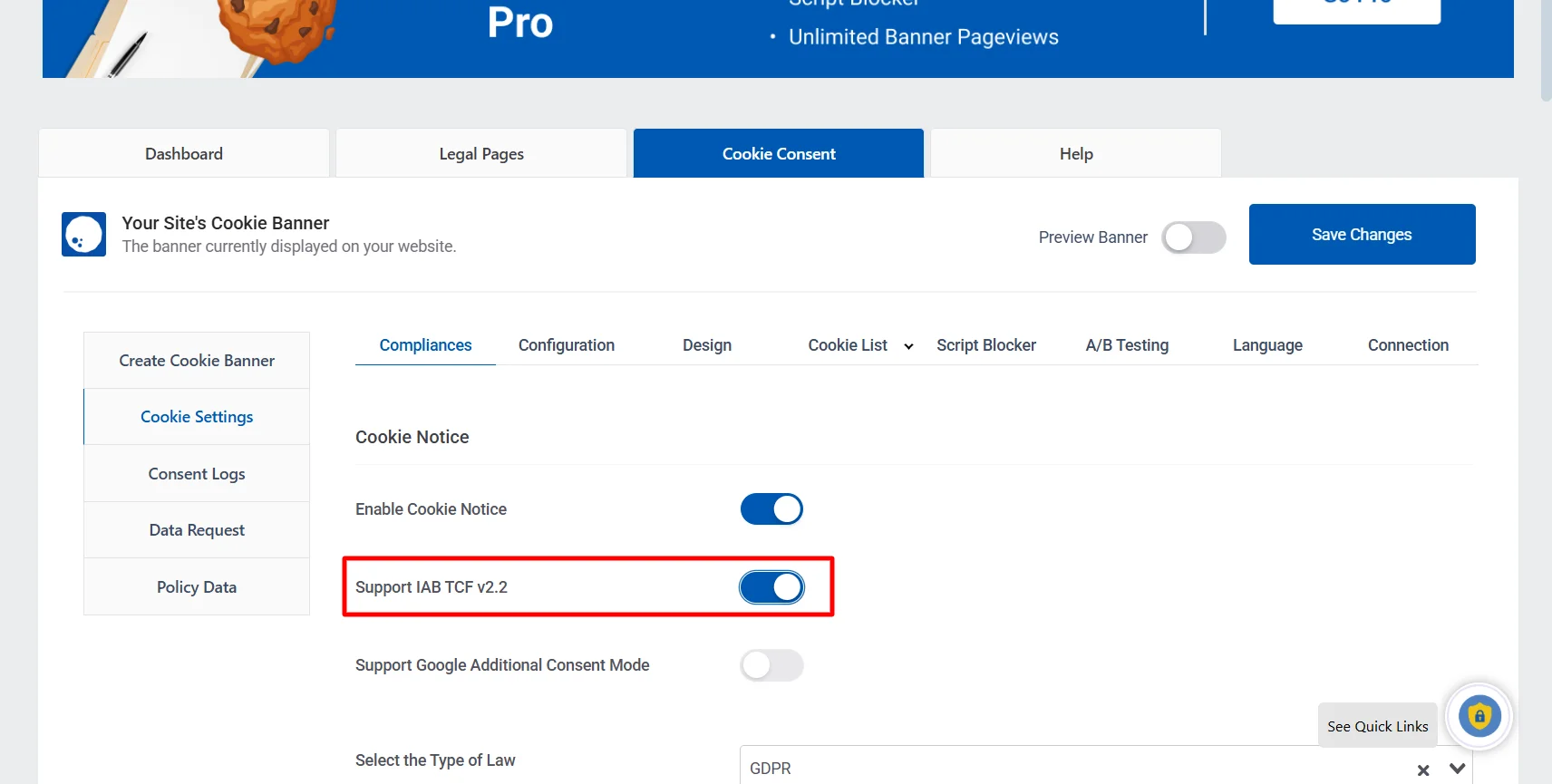
And that’s it. You have implemented the IAB TCF on your WordPress website with the help of WP Cookie Consent Plugin.
In addition, checking your website’s front end reveals a detailed list of vendors registered with IAB TCF.
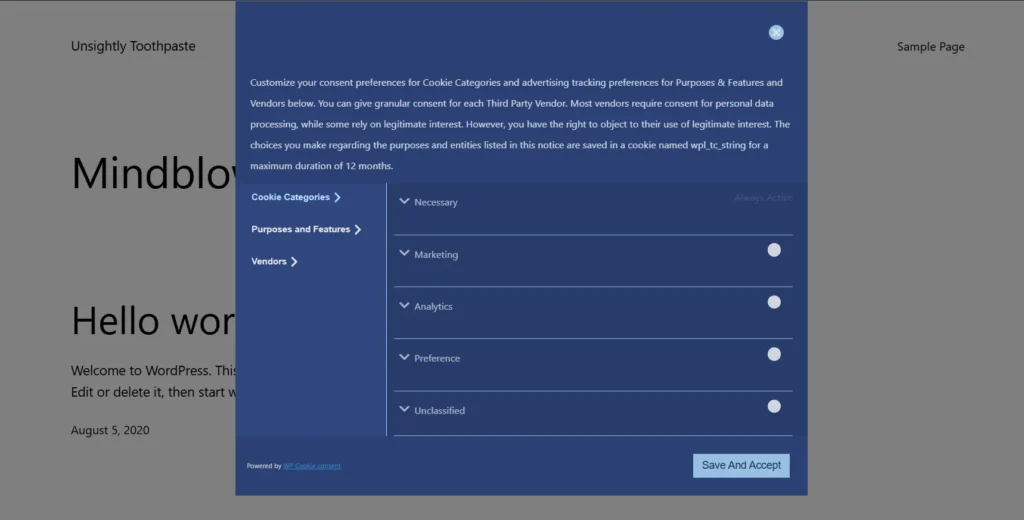
FAQ
If you don’t specifically target EU users, IAB TCF is not required, but it is good to have the IAB TCF in place.
No, a CMP is an essential part of the IAB TCF because it will collect, maintain and share consent signals.
If you do not follow GDPR and are subsequently fined, you may face potential consequences, including loss of ad revenue and a risk to your reputation.
Yes, most CMPs allow customization of the consent banner to match your website’s branding and messaging.
Conclusion
Online businesses must keep up with the current privacy regulations. The Transparency and Consent Framework of the Interactive Advertising Bureau helps websites keep up with the standard procedure of showing ads to users.
Understanding and implementing the IAB TCF guidelines aids publishers and website owners in achieving an environment conducive to user trust, conformity with laws such as GDPR, and effective user consent management for data processing.
By this kind of implementation, website owners can implement lots of managing consent collection, enhancing transparency, and improving user experience with tools like WP Cookie Consent plugin, using IAB TCF.
If you liked reading this article, don’t forget to read our other engaging articles:
- American Privacy Rights Act (APRA)
- COPPA: An Overview of Children’s Online Privacy Protection Act
- What Is the Gramm Leach Bliley Act (GLBA)?
Are you excited about implementing IAB TCF on your WordPress website? Grab WP Legal Pages Compliance Platform now!
